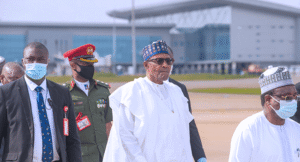
The Kwara State Government has disclosed that only 89 medical doctors are currently serving in government hospitals across the state, following a mass exodus of healthcare workers under the “Japa” wave.
This was revealed on Tuesday at the state’s first-quarter inter-ministerial press briefing for 2025. The Executive Secretary of the Kwara State Hospital Management Board, Dr. Abdulrahman Malik, lamented the shortage of medical personnel, saying the state needs between 180 and 200 doctors to adequately staff its hospitals.
“Due to the ‘Japa’ syndrome, doctors are not willing to take up appointments with the government, even when vacancies exist,” Malik said. “We only recently increased our numbers from 86 to 89 after three doctors who had earlier resigned returned, following the introduction of a revised salary package.”
He added that the government is offering improved remuneration and better working conditions to attract and retain healthcare professionals, especially in rural areas. An internship programme for nurses has also been introduced to bridge the gap left by the departure of trained nurses to foreign countries.
Meanwhile, the government announced that it had spent N1.5 billion on social investment programmes within the first quarter of the year, aimed at cushioning economic hardship and empowering vulnerable groups.
Acting Manager of the Kwara Social Investment Programme (KWASIP), Olayinka Tejini, said the initiative, launched in 2019 by Governor Abdulrahman Abdulrazaq, focuses on three core areas: direct cash support to the poor, job creation for youths, and promoting entrepreneurship.
According to him, 20,000 youths and vulnerable individuals received N20,000 each as a safety net, while another 20,000 petty traders got N20,000 to support their businesses. In addition, 7,000 households benefited from a separate support scheme, receiving N100,000 each.
“All the beneficiaries were selected without political bias or consideration of their locality,” Tejini said, emphasizing that the programme is inclusive and transparent.
In the agricultural sector, Commissioner for Agriculture and Rural Development, Afeez Abolore Alabi, said the state is working with several agencies to support farmers. He noted that efforts are underway to convert unused lands in state-owned tertiary institutions into farmlands, both to boost food production and to prevent encroachment.
Also speaking, the Commissioner for Business Innovation and Technology, Damilola Yusuf-Adelodun, provided updates on the renovation of Kwara Hotel. She said work on the 172-room facility, including four chalet suites, is progressing and nearing completion.
The briefing offered a broad overview of the government’s first-quarter activities, with key highlights from healthcare, social welfare, agriculture, and infrastructure.





